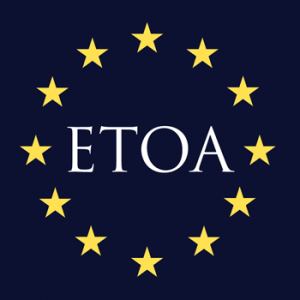 On Monday 20th June ETOA raised tourism concerns with Antonio Tajani, Vice President of the EC and the Commissioner in charge of Industry and Entrepreneurship. Mr Tajani met with senior figures from ETOA members for a special business lunch. During this lunch, four main areas were touched upon: the Commission’s initiative to encourage more tourism from Latin America, and by extension, other long-haul markets in the future; the issue of the handling of visas and the detrimental effect this can have on tourism from emerging markets; the creep of city taxes, specifically in Italy; and a look at the way tourism is taxed in general, in particular with regards to the Tour Operators Margin Scheme (TOMS) and VAT.
On Monday 20th June ETOA raised tourism concerns with Antonio Tajani, Vice President of the EC and the Commissioner in charge of Industry and Entrepreneurship. Mr Tajani met with senior figures from ETOA members for a special business lunch. During this lunch, four main areas were touched upon: the Commission’s initiative to encourage more tourism from Latin America, and by extension, other long-haul markets in the future; the issue of the handling of visas and the detrimental effect this can have on tourism from emerging markets; the creep of city taxes, specifically in Italy; and a look at the way tourism is taxed in general, in particular with regards to the Tour Operators Margin Scheme (TOMS) and VAT.
The details of the points raised were:
1) 50,000 Visitor Initiative
ETOA welcomes this initiative to promote tourism between South America and Europe.
The principle of “encouraging cultural tourism” is exactly the right initiative to appeal to all long-haul origin markets. We particularly appreciate that the private sector has been encouraged to participate. We look forward to helping ensure the success of this scheme.
2) Visas
Visas are a major problem for inbound tourism. ETOA’s Visa Survey revealed that 21% of all visitors who book vacations in Europe cancel because of problems associated with obtaining a visa. This is equivalent to over 500,000 tourists lost, or €1 billion in lost revenue. This does not take into account those dissuaded from booking in the first place.
Visa application The prospect of completing a visa process is a daunting one for a potential visitor. Anyone wanting to come to the Schengen area from, say, China may have to make an appointment at a visa processing centre (which can be 500 miles away), complete a form in a European language (not just a foreign language, but a foreign script), be photographed and fingerprinted (a process associated with criminality) and then interviewed. They are then charged €60, with no guarantee of being granted a visa. The processes related to UK and Ireland visas are even more problematic.
Visa processing Almost as problematic is the turn-around time and the apparent inconsistency in decision-making. Turnaround is anything from five days to thirty, depending on the consulate. Applicants with apparently identical paperwork are accepted in one consulate, not in another. Applicants are often left in suspense, not knowing whether or when their visa is to be issued, right up to departure date. This is a poor welcome to Europe.
3) City taxes
2011 has seen the introduction of an accommodation tax in Rome and a similar levy will come into force in Florence and Venice as of the 1st July. These charges add up when you multiply nights, people and star ratings (€128 for a family of four staying eight nights in 4 star hotels in Italy). Our biggest objection has been the procedural aspects of these taxes. Very poor consultation, a haphazard method of collection and a lack of due notice (less than a month in the case of Venice) creates major difficulties for the industry and its consumers. Clients buy their vacations up to a year in advance: this places hotels in a role of imposing a retrospective charge on a product which has been pre-sold.
4) VAT and the Tour Operators Margin Scheme (TOMS)
This is the most significant issue financially for EU-based tour operators. The problem is not to do with the levels of VAT within the EU, but the way VAT is applied to tourism products, especially exports. The price for a vacation to any EU destination sold by any EU-based operator includes VAT on the margin between the cost of the components and the price charged to the consumer. This does not apply to an operator based outside the EU.
This margin is not profit. It contains everything not directly supplied by another company. All in-house supplies and all staffing are taxed under TOMS, as are agents’ commissions, marketing, sales costs. These expenses are the process of adding value. TOMS is thus a tax on the investment necessary to deliver valuable visitors to the EU, as well as a tax on intra-EU visitors. Outside the EU, TOMS it is not collectable and so not paid. Today, nearly all operators that sell EU destinations to consumers are based outside the EU. Only the B2B sector is well represented in the EU.
As this tax is on “services supplied in the EU”, all non-EU holidays sold in Europe (say, to Turkey or to Florida) are untaxed. Thus the effect of TOMS is both to promote non-EU destinations, and to encourage businesses to move offshore.
Mr Tajani was very receptive to these points, stressing once again the importance of tourism to the European economy as a whole, while highlighting the complex role he has in dealing with 27 different nation states and many different departments with the European Commission. ETOA has offered its support and advice and are willing to help in any way we can to help his department in achieving its goals for ensuring Europe remains competitive as a tourist destination in the 21st Century.











